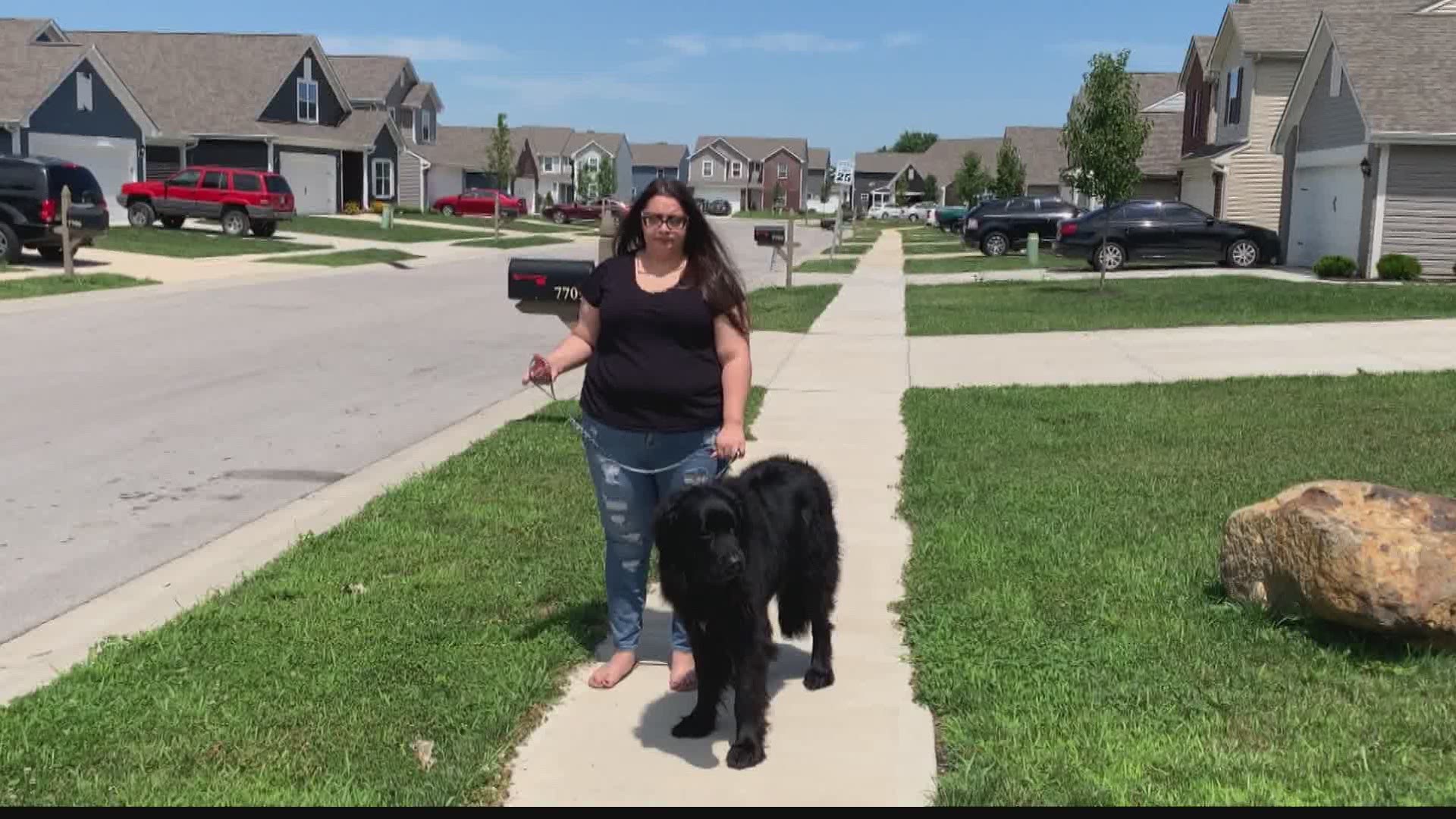INDIANAPOLIS — The medical community is learning that people who survive COVID-19 may experience a wide variety of symptoms for months after the initial onset, which includes brain and nervous system deficit that are not yet recognized by the CDC.
These "long-hauler patients" are now organizing online with a website and a Facebook page called Survivor Corps to share experiences and better educate themselves and the medical community about their needs.
The list of symptoms these patients report is lengthy, and Breanna Singh of Camby knows them well. She is 32 years old and survived a case of COVID-19 that included weeks in the ICU and a hospital discharge straight to a rehabilitation facility.
“I got up to 100 percent on the ventilator, and they called my parents and they basically said, 'just a waiting game, there's nothing more we can do,'” Singh said.
Her parents pushed for more options, and it led to Singh being transferred via Lifeline helicopter to IU Health’s Methodist Hospital.
While she doesn't remember much of her time there, doctors report Singh spent 18 days in the Intensive Care Unit and required ECMO treatment.
“This is the most aggressive form of life support that you can have, and it’s specifically targeted for the lungs to help the lungs heal up and do it safely to take that workload off the body,” Dr. Sikandar Khan said.
It worked. Gradually, Singh woke up and started breathing without assistance. Khan now sees her at a newly created IU Health COVID Survivor Clinic.
It’s modeled after a similar clinic for IU Health ICU patients, but Khan saw these coronavirus patients were presented with unique issues requiring a multidisciplinary team of specialists.
They care for patients who report to one room and one at a time, see a pulmonologist, a cognitive health specialist, a chaplain, a physical therapist, a pharmacist and a member of the mindfulness team.
Singh sees a dermatologist for skin rashes and a physical therapist to help with her balance.
"My balance is really bad. I can't stand on one foot for longer than one to two seconds," Singh said.
She also follows up with a pulmonologist for breathing issues. She is also getting support to cope with anxiety, focus and depression challenges.
“She certainly had very severe illness from COVID-19. And now she has to get all her strength back, and she has to basically come to terms with some of her other symptoms, and we're here to help her do that,” Khan said.
What Khan is seeing in his clinic mirrors what IU School of Medicine researcher Dr. Natalie Lambert is reporting in her work. She surveyed members of Survivor Corp to better learn how COVID-19 was still affecting them.
“What is interesting about our study is that we found some symptoms that the CDC doesn't recognize yet. And that was things like difficulty concentration, or focusing program with sleeping memory problems, so a log of things related to the brain and nervous system, as well as joint pain, even hair loss and problems with vision.” Lambert said.
Her data shows that fatigue is the number one complaint, followed by muscle and body aches, shortness of breath/difficulty breathing and difficulty concentrating and focusing.
We offer “cognitive behavioral therapy to really address all of their cognitive physical function and psychiatric or mood symptoms,” Khan said.
Now, the IU medical teams want to get the word out so there is a better community understanding and awareness of the long-term impact of COVID-19 and what survivors are dealing with at work and at home.
“I think the most interesting part to me is the feeling of a lack of recognition. They know there's so many people who are suffering from long term symptoms and yet employers and even family members are still quite skeptical that these people are still sick,” Lambert said.
Khan reports the COVID Clinic, which meets each Friday, is growing in patient population each week, and many of them are younger, like Singh.
“Their road to recovery is going to be long, and it's going to be tough,” Khan said.
Singh welcomes the support, validation and direction.
“I've never had a major medical issue before this. I don't know what needs to be done,” Singh said.
Doctors told Singh her recovery could take a year or more. It’s time she knew she nearly lost.
"I'm glad I'm alive. It was bad, it was. Not a fun thing to go through," Singh said.

